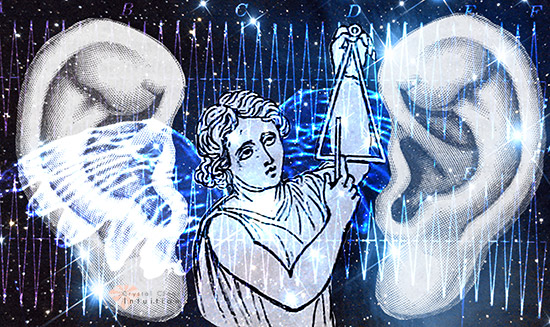Left Ear Ringing: Causes, Symptoms, and Effective Solutions
Left ear ringing, often referred to as tinnitus, is a common auditory phenomenon that can be both puzzling and distressing. This ringing, buzzing, or hissing sound in the left ear is a prevalent concern, leaving many individuals searching for answers. In this comprehensive guide, we will delve into the world of left ear ringing, shedding light on its causes, symptoms, and effective solutions.
Understanding Left Ear Ringing
Left ear ringing, or tinnitus is a perception of sound when no external noise source is present. It can manifest as a variety of sounds, including ringing, buzzing, whistling, or humming. Understanding the nature of this auditory phenomenon is the first step in addressing it.

The Auditory System:
To comprehend left ear ringing, it’s essential to grasp how our auditory system works. Sound waves are captured by the ear and processed by the brain. Tinnitus occurs when there’s a disturbance in this intricate system.
Types of Tinnitus:
Tinnitus can be categorized into two main types: subjective and objective. Subjective tinnitus is the most common and is only heard by the individual experiencing it. Objective tinnitus is rare and can be heard by both the affected person and a healthcare provider.
Potential Causes:
Left ear ringing can have various causes, ranging from exposure to loud noises to underlying medical conditions. These causes can be temporary or chronic, making it crucial to identify the underlying factor.
Common Causes of Left Ear Ringing
Left ear ringing can be triggered by a range of factors, and understanding these causes is crucial for effective management. Here are some common culprits:
Noise-Induced Tinnitus:
Exposure to loud noises, such as concerts or heavy machinery, can damage the sensitive hair cells in the inner ear, leading to left ear ringing.
Age-Related Hearing Loss:
As we age, changes in the inner ear’s structure can result in hearing loss and tinnitus, often affecting the left ear.
Earwax Buildup:
Accumulated earwax can block the ear canal and cause tinnitus. This issue is easily resolved through professional earwax removal.
Symptoms and Associated Problems
Left ear ringing is often accompanied by a range of symptoms and can lead to additional challenges:
Symptoms of Tinnitus:
Beyond the auditory perception, individuals with tinnitus may experience dizziness, ear fullness, and fluctuations in the intensity of the ringing.
Impact on Quality of Life:
Tinnitus can disrupt sleep, concentration, and daily activities, causing frustration and stress.
Hearing Loss:
In some cases, tinnitus may coincide with hearing loss, further affecting communication and overall well-being.
When to Seek Medical Attention
Left ear ringing can sometimes be a temporary and benign occurrence. However, there are instances when seeking medical attention is vital. Here’s when you should consider consulting a healthcare professional:
Sudden Onset:
If left ear ringing suddenly begins without exposure to loud noise or apparent cause, it’s advisable to consult a healthcare provider.
Prolonged or Persistent Tinnitus:
If tinnitus continues for an extended period, especially if it’s affecting your daily life, a professional evaluation is necessary.
Home Remedies and Self-Care
While professional evaluation is important, there are several home remedies and self-care strategies that individuals can employ to manage left ear ringing:
Sound Therapy:
Masking the ringing with background noise, such as white noise or calming sounds, can provide relief.
Relaxation Techniques:
Practices like yoga, meditation, and deep breathing can reduce stress and tinnitus-related anxiety.
Medical Treatments and Interventions
For individuals with persistent left ear ringing that significantly impacts their quality of life, various medical treatments and interventions are available:
Medications:
In some cases, medications like anti-anxiety drugs or antidepressants may be prescribed to manage the psychological effects of tinnitus.
Hearing Aids:
For individuals with hearing loss accompanying tinnitus, hearing aids can improve overall auditory perception.
Tinnitus Retraining Therapy (TRT):
TRT combines counseling and sound therapy to help individuals habituate to the perception of tinnitus.
Frequently Asked Questions (FAQs)
1. What is left ear ringing, and is it a common condition?
Left ear ringing, known as tinnitus, is a perception of sound when no external noise is present. It’s a prevalent condition that affects millions of people worldwide.
2. What causes the left ear to ring?
Left ear ringing can have various causes, including exposure to loud noises, age-related hearing loss, earwax buildup, and underlying health conditions.
3. Is left ear ringing always a sign of a serious problem?
Not necessarily. While left ear ringing can sometimes indicate an underlying issue, it can also be a temporary and benign occurrence, especially if it goes away quickly.
4. How is tinnitus diagnosed by healthcare professionals?
Healthcare providers diagnose tinnitus through a comprehensive evaluation, including a medical history review and auditory tests.
5. Can left ear ringing be cured?
There is no one-size-fits-all cure for tinnitus, but various treatments and management strategies are available to alleviate symptoms.
6. Are there lifestyle changes that can help with left ear ringing?
Yes, lifestyle adjustments such as reducing caffeine and alcohol intake, managing stress, and protecting your ears from loud noises can aid in managing tinnitus.
7. What role does stress play in left ear ringing?
Stress can exacerbate tinnitus symptoms, making the perception of ringing more noticeable and bothersome.
8. Are there support groups or communities for individuals with tinnitus?
Yes, there are many online and local support groups where individuals with tinnitus can share experiences and coping strategies.
9. Can hearing aids help with left ear ringing?
Hearing aids can be beneficial for individuals with tinnitus, especially if hearing loss accompanies the condition.
10. Is it essential to seek medical attention for left ear ringing?
It’s advisable to consult a healthcare professional if left ear ringing is sudden, persistent, or accompanied by other symptoms to rule out any underlying health concerns.
Conclusion:
In conclusion, left ear ringing, or tinnitus is a condition that can vary in its severity and impact on individuals. While it may not always have a definitive cure, understanding its causes, symptoms, and management options empowers individuals to take control of their well-being.




